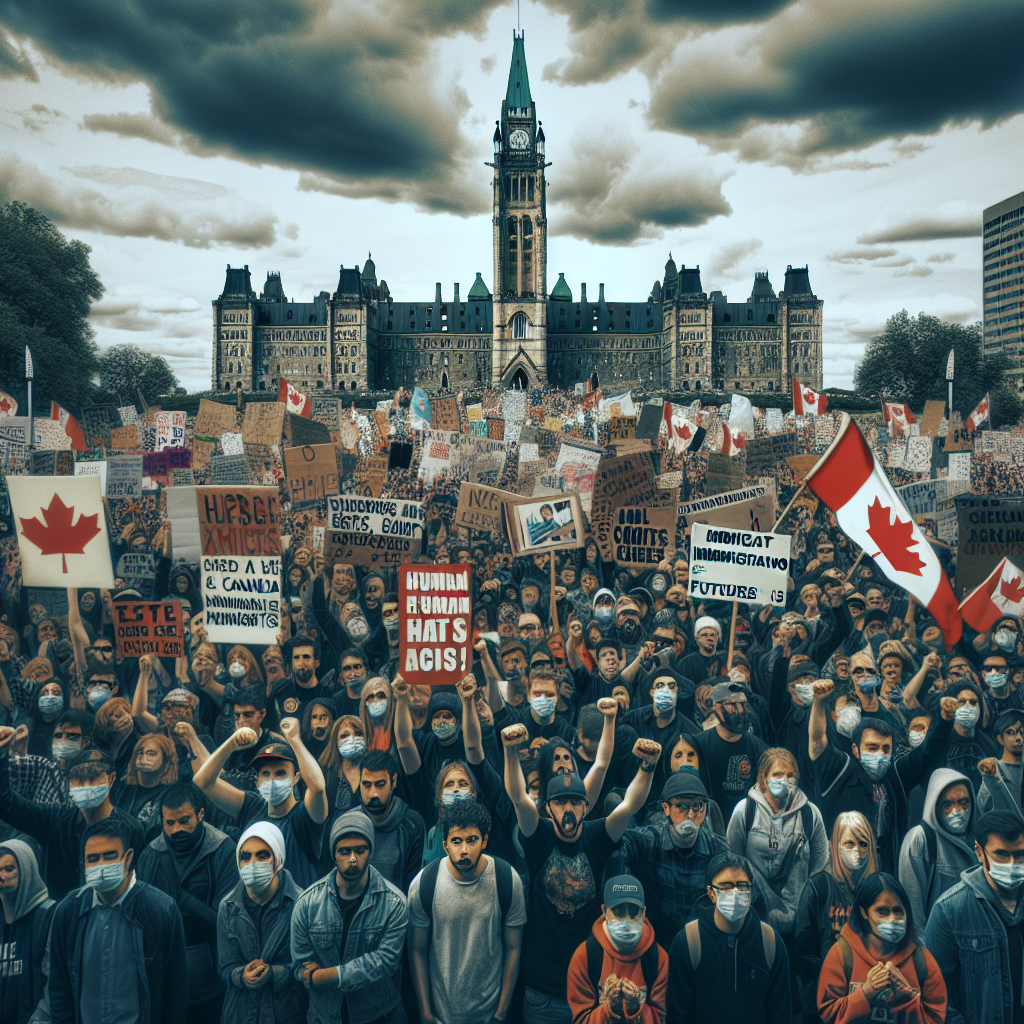Bill C-2 Sparks Privacy and Civil Liberty Worries for Canadians

Canada’s Bill C-2: A Threat to Human Rights and Immigration Integrity
Canada has long stood as a beacon of fairness and human rights, particularly in its immigration policies. However, the recently proposed Bill C-2, dubbed the “Strong Borders Act,” threatens to undermine this reputation significantly. Advocates across the nation are voicing their concerns that this sweeping legislation could dismantle essential refugee protections, erode privacy rights, and grant the government alarming powers to revoke immigration status without fair legal processes.
Key Issues with Bill C-2
-
Stripping Refugee Protections: The bill seeks to redefine who qualifies for protection in Canada, effectively narrowing the scope of asylum seekers and potentially leaving many vulnerable individuals without recourse to safety.
-
Mass Surveillance and Privacy Violations: One of the most concerning aspects of Bill C-2 is its provisions for mass data collection. Law enforcement agencies would gain unprecedented access to Canadians’ online activities without a warrant, fundamentally altering the privacy landscape. This includes allowing police to access encrypted communications based on mere “reasonable suspicion,” a significant downgrade from existing legal protections.
-
Corporate Complicity: The bill could compel businesses to monitor and disclose private user data without accountability, effectively normalizing corporate surveillance and further infringing on individual privacy rights.
-
International Data Sharing Risks: Bill C-2 aligns Canada’s data practices with the U.S. CLOUD Act, which raises concerns about the security of Canadians’ personal information being shared with foreign entities, exposing them to inadequate protections.
- Impact on Vulnerable Populations: Migrant advocacy groups have raised alarms that the bill’s provisions could push vulnerable populations, including survivors of gender-based violence, into precarious situations. The bill fails to address the unique challenges faced by these individuals, which could lead to increased exploitation and danger.
A Collective Response
A significant wave of resistance has emerged, with over 300 civil society organizations, legal experts, and human rights advocates uniting against Bill C-2. Their joint statement underscores that this legislation represents not merely a policy shift but a critical juncture for Canadian democracy and human rights. The potential consequences of the bill are alarming, with critics warning it could lead to a rollback of decades of progress in safeguarding human rights and refugee protections.
A Call to Action
As the debate unfolds, it is crucial for Canadians to remain informed and engaged. The implications of Bill C-2 extend beyond immigration; they threaten the very fabric of civil liberties in Canada. The erosion of privacy and the potential normalization of surveillance pose risks to all residents, not just migrants.
Conclusion: Protecting Canada’s Moral Authority
If passed, Bill C-2 could significantly tarnish Canada’s global standing as a champion of human rights. It risks transforming the immigration landscape from one of fairness and compassion into one characterized by fear and mistrust. Now is the time for Canadians to advocate for transparency, uphold the values of justice and equity, and demand that their government protect the rights of all individuals within its borders. The future of Canada’s immigration system—and indeed, its identity as a nation—depends on it.



